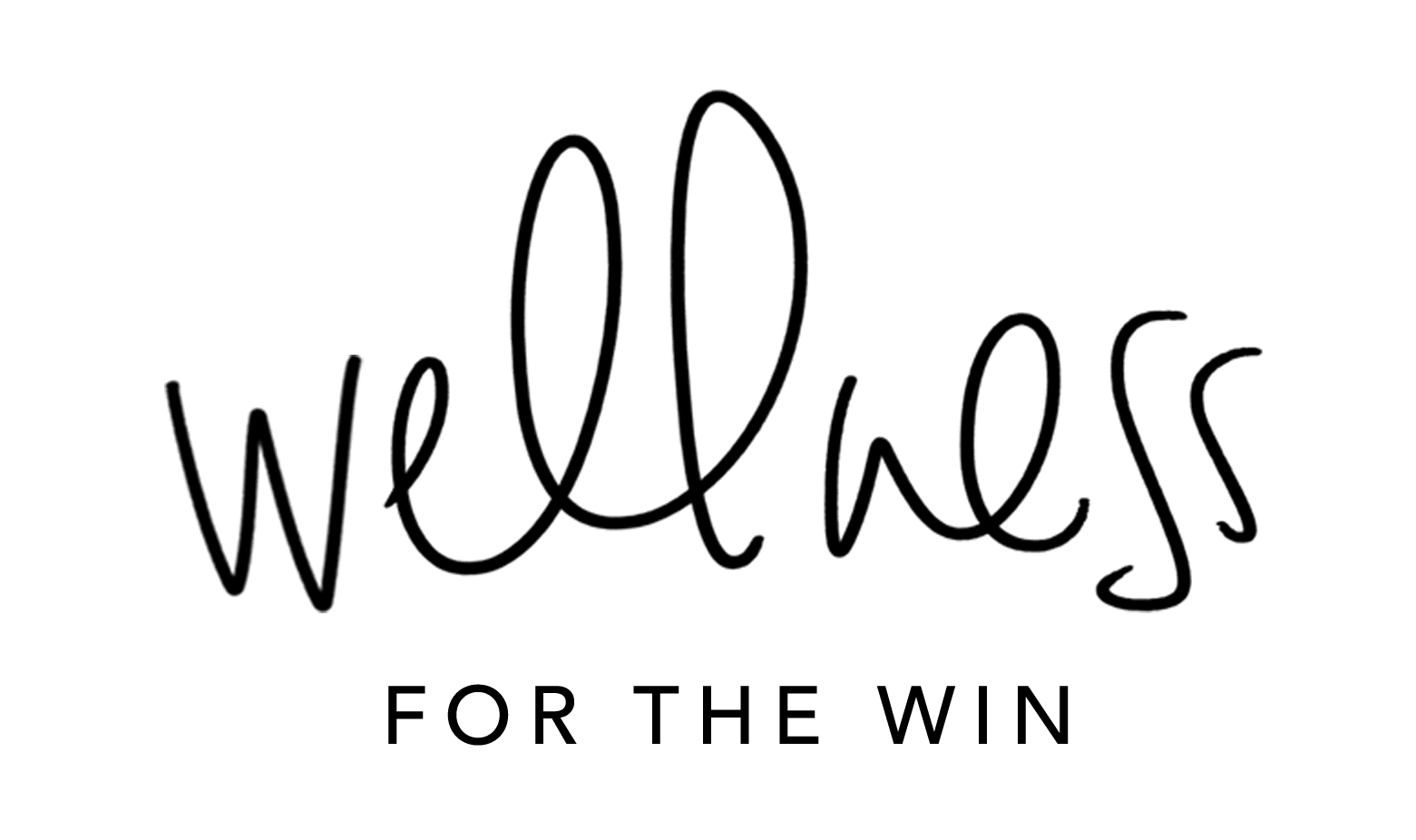How to Live a Healthy, Balanced Life as a Mom
Let’s talk about how to live a healthy, balanced life as a mom.
I want to start off by acknowledging that “balance” is a tricky term. I think it’s something that many of us are constantly striving for, but is it actually achievable for anyone, especially busy moms?

Whether you go back to work after baby or stay at home, it’s always going to be a challenge to strike a balance between the demands of motherhood, maintaining relationships, including with your partner, friends and family, and what we are going to discuss in this post – making time to care for YOURSELF.
As a soon-to-be second-time mom, I pretty much know what to expect as far as the postpartum period goes. However, with that said, it is a little fuzzy from last time. And, it could be totally different this time around! Everyone loves to tell you that all babies are different. ; )
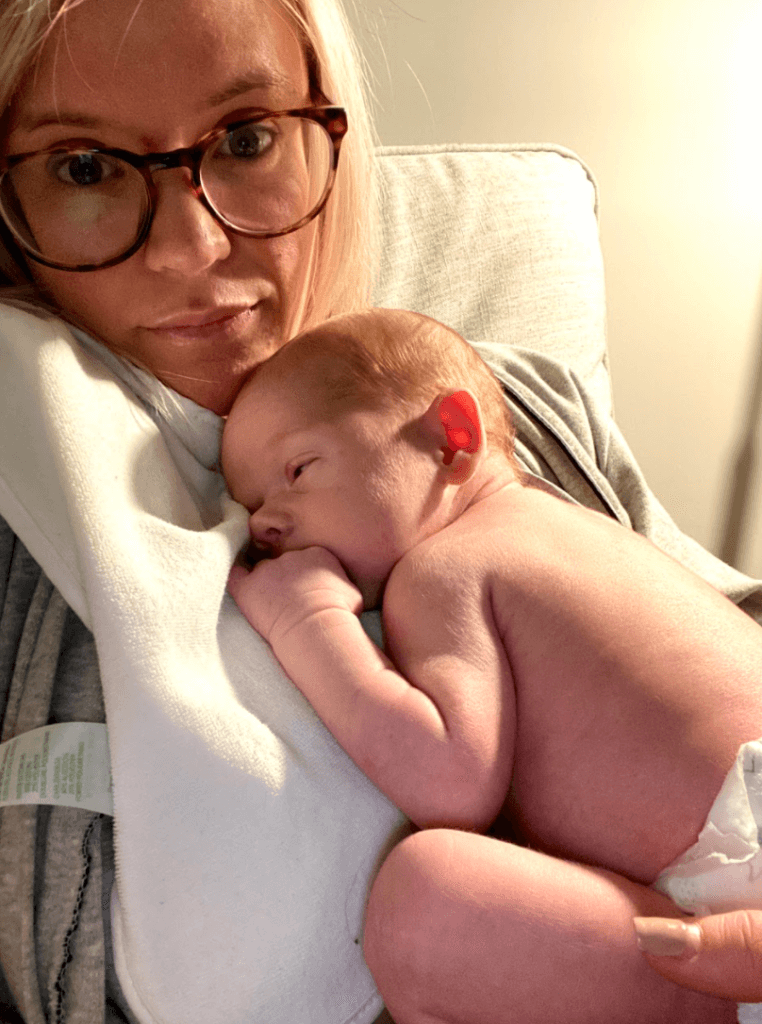
It’s amazing how quickly you can forget such pivotal periods of time in your life such as the newborn phase. Maybe it’s a blessing that my brain seems to be blocking out most of the hard stuff and I’m remembering more of the good stuff, like newborn snuggles, the first time your baby smiles at you, and all of the other beautiful, joyful moments. : )
Disclosure: this post is sponsored by AdventHealth Kansas City, a brand that I am proud to be partnering with throughout this pregnancy!
it’s easy to lose yourself in motherhood
One thing I do remember about postpartum last time is that motherhood can quickly and easily become all-consuming. Not necessarily in a bad way, but for the first several months, I was IN IT.
If you’ve had a baby before, you get it. You’re just in full-blown baby mode for a while. At least that was the case for me as a first-time mom. I’ll be curious to see how I adjust the second time around. If I’ll find it easier to get into a rhythm, or if I’ll let myself ease back into things even more slowly, especially knowing this will be my last time doing this baby thing.

I’m going to try to surrender to whatever feels best to me once the time comes. I don’t want to put too much pressure on myself to jump back into work or any other responsibilities for a while. I want to soak up the solo time I have with baby Levi as much as I can, just like I did with Rhett. Babies don’t keep!
Like they say, the days are long, but the years are short, and man, is that the truth. I already somehow have a 2+ year old, who is about to feel SO big in comparison to his tiny baby brother. HOW did that happen???
prioritizing wellness in motherhood
As the name of my blog and brand suggests, I am a big advocate of health and wellness. Although I don’t love or agree with a lot of the things that are marketed in the “wellness” space today, I believe that taking good care of ourselves is essential in ALL seasons of life, but especially during pregnancy and postpartum.
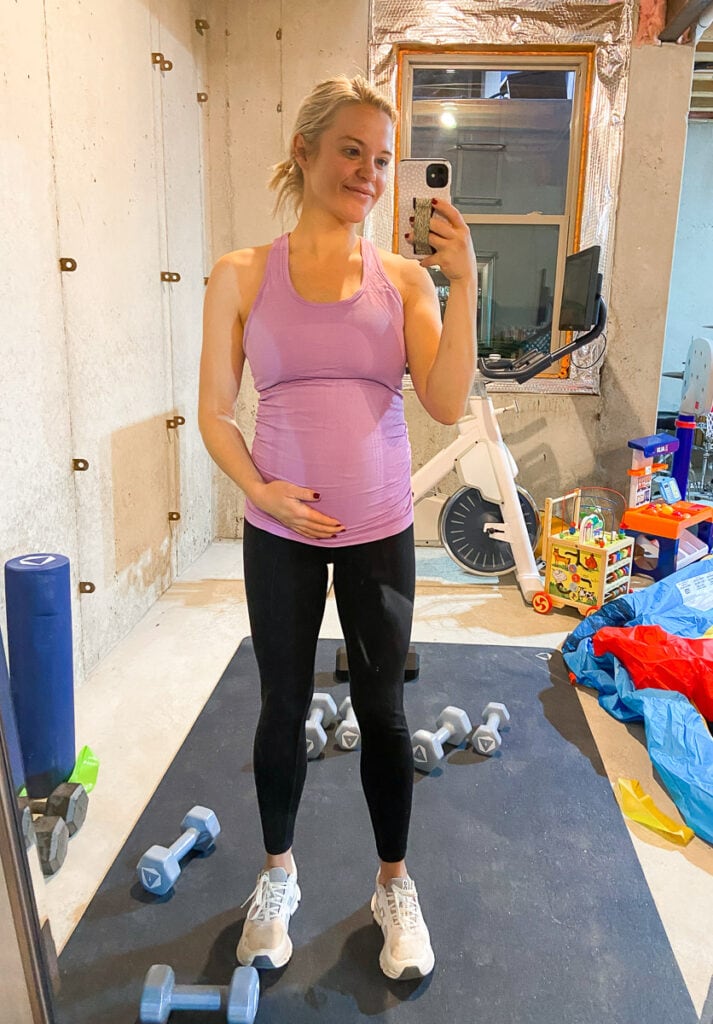
These days, a lot of people are following all these crazy trends and severely overcomplicating wellness, when really, it can be quite simple. I’d love to show you how to simplify wellness so it feels realistic to prioritize it in your daily life, even as a busy mom.
Some specific areas I want to touch on today include:
- Diet & nutrition
- Exercise
- Mental health
- Relationships
- And more
I will also share some amazing resources that you can utilize through AdventHealth Kansas City to further support you in your parenting journey. I love that AdventHealth Kansas City is equally passionate about whole-person health and provides so many tools to help you be your healthiest self in all seasons of life.
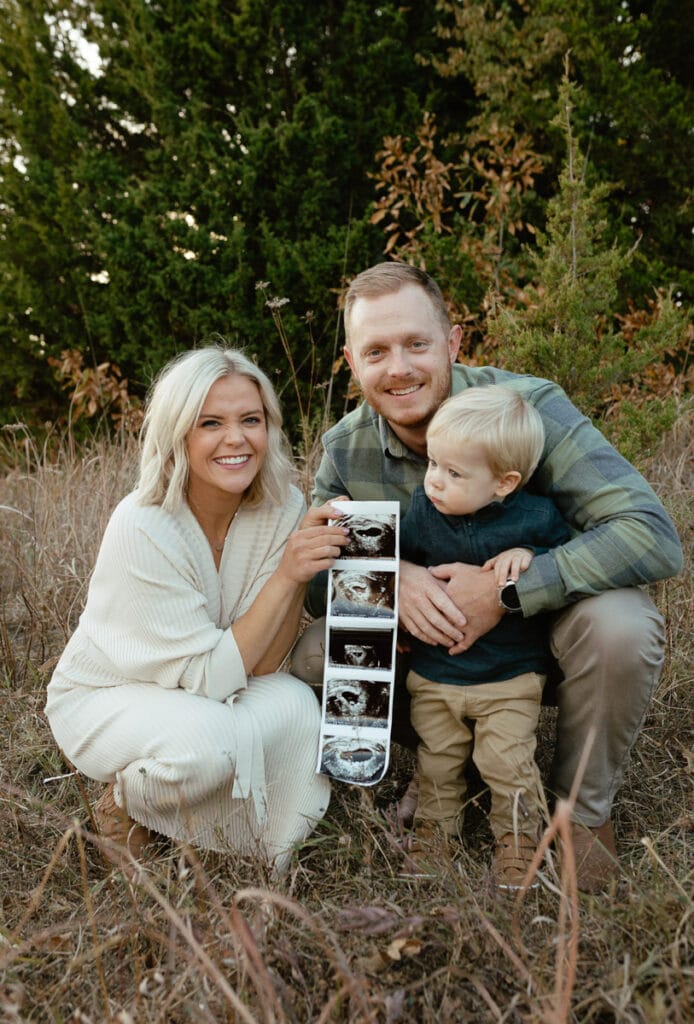
prioritizing nutrition as a new mom
As both a Registered Dietitian and a mama who has navigated postpartum and breastfeeding, I get lots of questions about nutritious, easy meal and snack options for the postpartum period.
There are several things that we want to consider regarding nutrition early postpartum, and just in general to fuel our families!

nutrition tips for early postpartum
- Ensure you are eating ENOUGH. Adequate nutrition (especially calories & protein from nutrient-dense whole foods) is so important for healing after birth. It’s crucial to make sure you are eating regular, consistent meals and snacks and not going really long periods of time without eating.
- This can be easier said than done when you’re busy with a little one, so set yourself up for success by having some freezer meals prepped, or quick and easy snacks on hand like sliced cheese, mixed nuts, hard boiled eggs, meat sticks, fruit to pair with peanut butter, Greek yogurt with fruit & granola, ingredients to make smoothies, etc.
- Lean on your support system! If you have friends and/or family nearby, don’t be afraid to ask for help. People in your life would likely be happy to set up a meal train or bring by some easy options to get you by, especially in those early weeks.
- Continue taking your prenatal supplements for extra support, as nutritional needs are still increased postpartum. You will also want to continue taking these throughout your breastfeeding journey if you choose to do so.
- Consider getting your labs checked in the first few months postpartum to see if there are any specific nutrients you are deficient in, especially if you are experiencing any unusual symptoms, severe exhaustion, etc. Chat with your provider and supplement as needed or make any necessary diet or lifestyle changes.
- Staying adequately hydrated is crucial as well. Keep a big, reusable water bottle handy at all times (the one from the Birth Center with a handle and straw is amazing!) to help remind you to drink consistently. Having a few water bottles spread out in the main places you find yourself with baby will be helpful (i.e. one in the living room, nursery, by your bedside, etc.) because it’s very common to get trapped by a sleeping baby! : )
- Plain water is great, but you might consider adding in some electrolytes as well for added hydration, especially if you are nursing.
Check out this podcast episode to learn more about nutrition before, during and after pregnancy!
nutrition tips for moms & feeding families
Nutrition continues to be so important beyond the early postpartum period, and can support our physical and mental health in so many ways. It is easy to get busy as moms and skip meals or just take random bites of our kids’ food here and there, but do your best to fuel yourself, too. Your body will thank you for it!
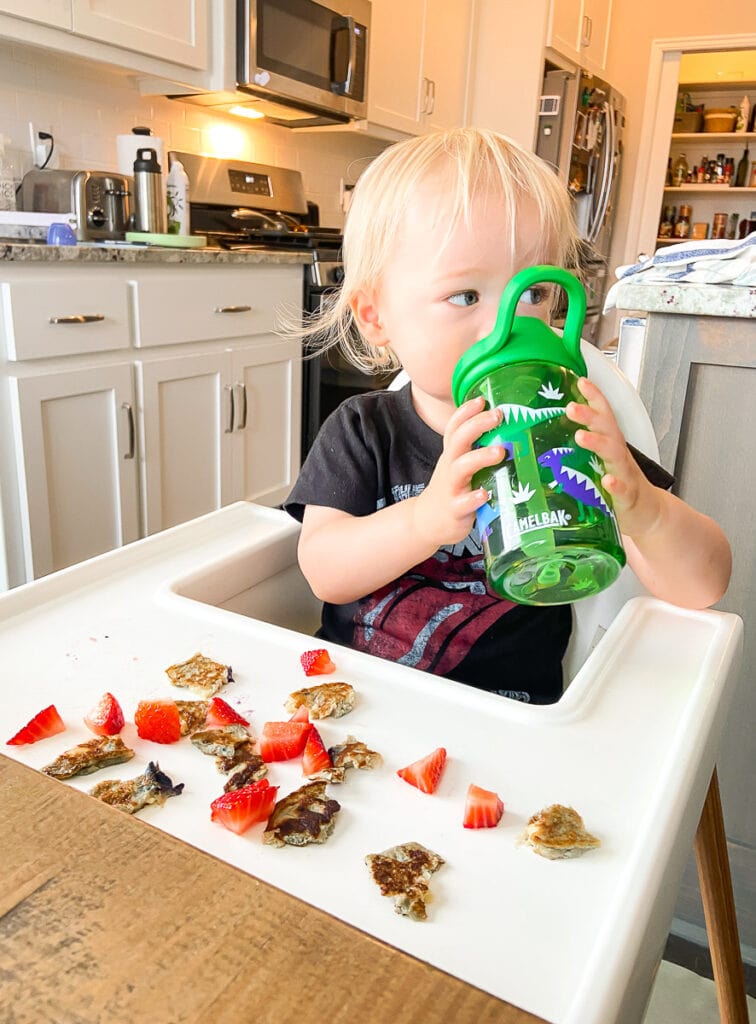
- Create balanced meals. Each time you are eating, aim to get a balance of protein, healthy fat and fiber-rich carbs. (This goes for the early postpartum days, too!) This helps support balanced blood sugar, which can help with more steady energy levels throughout the day.
- Eat regular, consistent meals. Again, skipping meals can lead to low energy levels, poor nutrient intake, blood sugar fluctuations, and more. You will feel so much better if you make it a priority to eat every few hours.
- Everyone is different, but that could look like 3 meals + 1-2 snacks throughout the day, or 5-6 smaller meals/substantial snacks, etc. Experiment to see what feels best for you and what’s most realistic for your schedule.
- Aim for variety. Variety in the diet is key! Not only does this help you get a wider variety of nutrients to support your overall health, but it also prevents you from getting bored of eating the same things over and over. Of course, we all have our favorites and staple items, but don’t be afraid to mix it up occasionally too, and include a new food or recipe each week. This can also help your kids to be exposed to all kinds of foods, which is so helpful to combat picky eating.
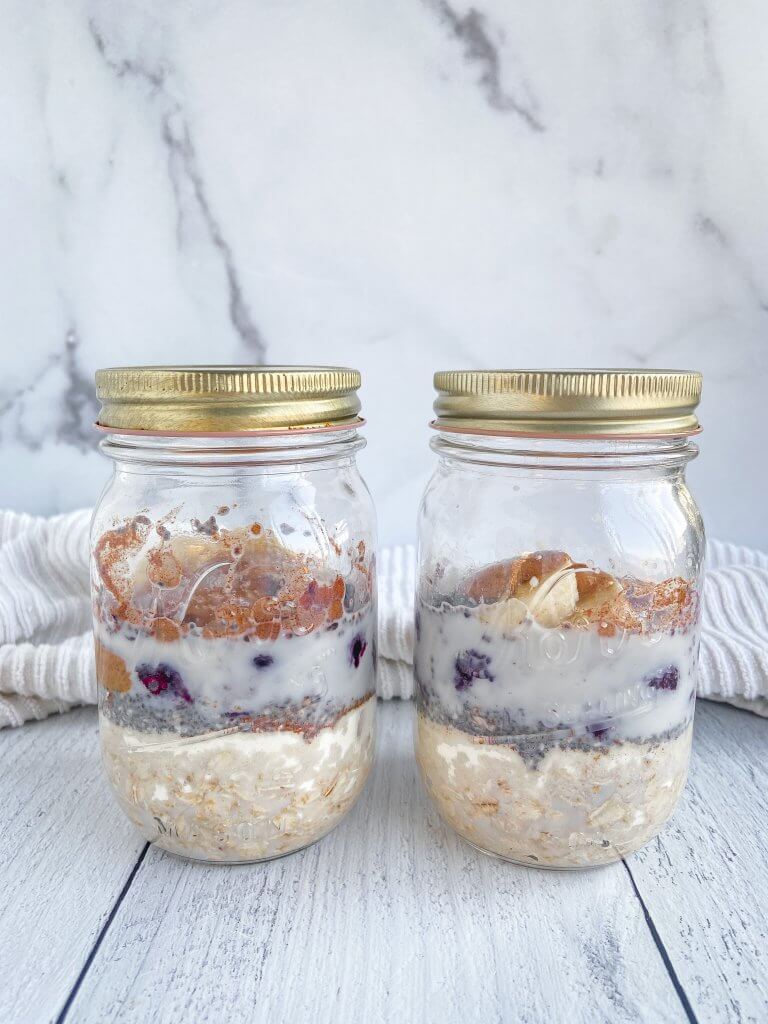
prioritizing movement postpartum
I know so many women feel overwhelmed by the thought of starting to exercise again postpartum. They don’t know where or when to begin, what is considered “safe”, and if you have any issues like diastasis recti, prolapse, or any other complications after birth, then you might feel even more confused about what you should do.
Typically we think of that 6-week follow-up visit with our OB/GYN as the milestone we need to get to before we start back up with exercise, but there are definitely some things that we can safely do before that. For example, once you feel ready physically, some light walking can be a great form of movement to do and it can be so good for you mentally as well to get some fresh air and move your body.

You can also start with some pelvic floor work like deep breathing and certain poses and stretches. I personally struggled with a lot of back pain while breastfeeding when I was postpartum with Rhett, so I hope to combat that a little bit more this time by doing some specific targeted exercises and stretches that will help.
I did a podcast episode with a pelvic floor therapist with tips on what to do before, during and after pregnancy if you want to learn more!
In addition, I am planning to continue utilizing the Expecting and Empowered workout guides in the postpartum period. (Affiliate code is WELLNESSFORTHEWIN) I have used these all throughout my pregnancy to help me engage in safe, effective workouts and I know they will be so helpful post-baby, too! These also include lots of pelvic floor work and workouts that help you slowly progress back to more intense workouts over time.

If you are having any issues postpartum, such as constipation, hemorrhoids, severe pelvic heaviness, incontinence, or anything else, please talk to your doctor, and see if you can get a referral to a pelvic floor physical therapist. It’s so important to be assessed so someone can provide some individualized guidance for whatever you’re experiencing.
Click here for a post I did on constipation during pregnancy, that will be relevant for postpartum as well!
mental health during pregnancy
During this second pregnancy, I have definitely struggled with anxiety at times. Especially in the first trimester, I had a lot of fear of having another loss, and this continued to be something I thought about on and off the entire time. Thankfully it has gotten much better and I have felt really supported by all of my providers at AdventHealth Kansas City whenever I expressed concerns or just needed extra peace of mind at or between appointments.

Another thing that has weighed on me during this pregnancy is the fact that our time with Rhett as our only child is coming to a close very soon. In some ways that feels really exciting, and in other ways it feels super sad and bittersweet.
I have no doubt that Rhett will be an amazing big brother, and he seems to be excited about baby bro on the way, but I’m fully aware that it will be a huge adjustment for all of us. I’m giving myself permission to feel all the feelings about this change, but trying to stay positive and have hope that it will go even better than I think. Fingers crossed.

mental health during postpartum
Now, let’s talk postpartum. Thankfully, conversations around postpartum depression, anxiety and other mental health struggles that moms face are becoming more normalized. However, there is still some stigma and shame around mental health issues in general, but I want to encourage you to seek help if you need it. If you’re struggling with your mental health after having a baby, you are NOT alone.
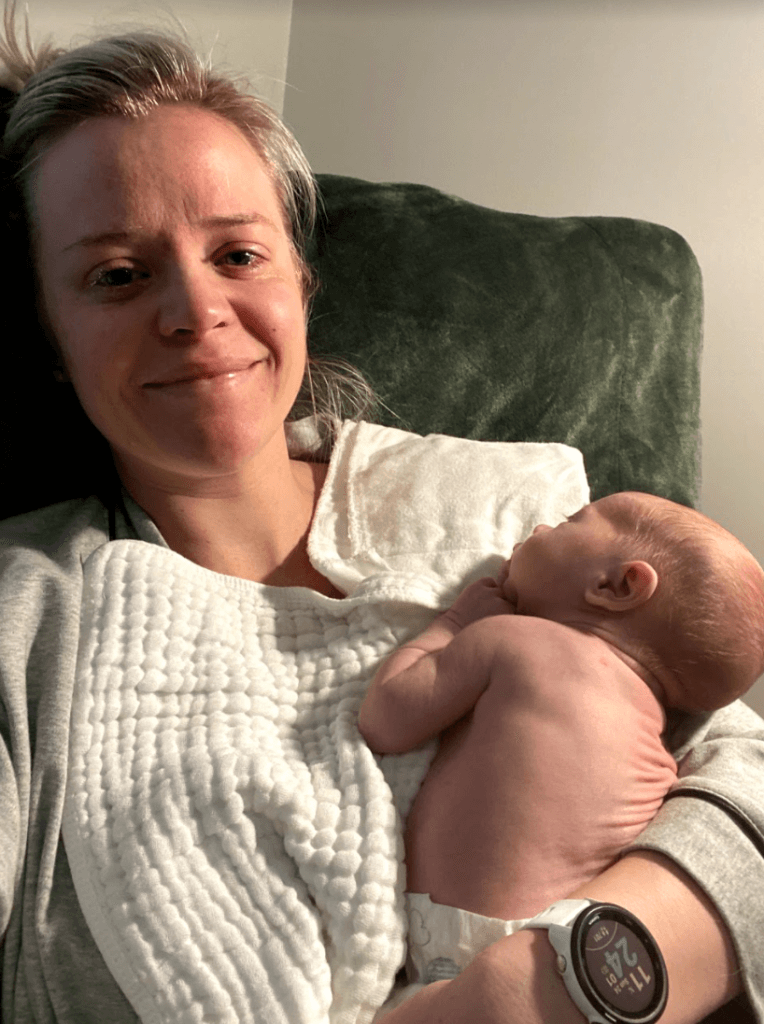
Hopefully your provider has spoken with you about red flags to watch for in the postpartum period and explained the difference between the “baby blues” and postpartum depression, postpartum anxiety and/or postpartum psychosis, etc. Almost all moms experience the baby blues in the first few weeks postpartum due to massive hormonal changes, not to mention, a huge life change!
I recorded a podcast episode with licensed therapists on postpartum mental health that I highly recommend listening to so you know the signs to look for and what to do. Click here to listen.
additional tips & support on mental health from AdventHealth Kansas City
I am so passionate about talking about mental health during these huge life transitions so that other women feel less alone if they’re struggling, AND they feel empowered to speak up and get the help they might need.
Tricia Rausch, the Program Coordinator for the Perinatal Bereavement & Postpartum Emotional Support at AdventHealth Kansas City, answered some additional questions below regarding mental health that you might find helpful.
1. what are the signs of postpartum depression (PPD)?
Signs and symptoms of PPD can be different for everyone, and may include:
- Anger or irritability
- Excessive worry
- Change in appetite
- Sleep disturbances
- Sleep inevitably changes with a newborn in the house, but if you cannot rest when given the opportunity or feel like you cannot get out of bed, those are signs that it may be more than sleep deprivation.
- Crying or sadness
- Feeling hopeless, guilt or shame
- Loss of interest or joy in the things that used to bring you joy
- Thoughts of harming yourself or your baby
There are many other emotions and feelings that go along with this as well. It is important to note that depression can start during pregnancy as well and can begin up to one year after delivery as well.
Perinatal depression (depression during and after pregnancy) is the most common complication of childbearing, so please know you are NOT alone.
Talk to your OB provider about risk factors that may increase your chances of having postpartum depression. In addition, postpartum depression is only one of the perinatal mood disorders that we see. There is also perinatal or postpartum anxiety, PTSD, and OCD. Each of these have similar but different symptoms and effective treatments.
2. what should moms do if they think they might be experiencing postpartum depression?
If you think you may have PPD, please reach out. There is help available. You are not alone and this is not anything you caused. You will get better.
Call your OB Provider and/or your family physician. If it is after hours, you can always go to the closest Emergency Department. For emergencies, contact the National Crisis line, text HOME to 741741 from anywhere in the USA, anytime for any type of crisis.
You can also reach out to the National Suicide Prevention hotline and website by dialing 988 or going to www.suicidepreventionlifeline.org.
You can call AHSM Postpartum Emotional Support line 913-632-4223, and get set up with resources here in your community. There is also the Postpartum Support International Helpline, for English text 800-944-4773 and for Spanish text 971-203-7773.
3. can father’s experience a form of depression/anxiety once baby arrives?
Fathers can definitely experience depression and anxiety related to a new baby. Statistics show that one in ten dads develop postpartum depression and up to 18% will develop a significant anxiety disorder like GAD, OCD or PTSD at some point during the pregnancy or in the first year after.
There are more resources available for fathers than we have had in the past. Fathers are welcome to call or text the PSI Helpline, 800-944-4773, with concerns for themselves or their partner.
There are also Facebook pages dedicated to Fathers and Postpartum Depression as well as a wonderful online support group offered through Postpartum Support International.
how can I make myself happy as a mom?
Now that we’ve touched on nutrition, exercise and mental health, let’s talk about how to simply find JOY in our lives after having babies. Because yes, this is still very possible!!! Your life is NOT over after you have kids — please don’t let anyone tell you otherwise.
Since it can be easy to get lost in motherhood and caring for your sweet, new, precious baby, it’s important to be reminded to care for YOU, too. I know it’s cliche to say, but truly, we can’t pour from an empty cup.

We have to find ways to practice self-care regularly — even in the smallest, simplest ways — in order to feel good, physically, mentally and emotionally.
We have to make time to do the things that we loved BEFORE becoming a mom, connecting with our friends and family, and other things that make us feel truly happy and fulfilled.

When you’re sleep-deprived AND feel like you’re really lacking in social connection with others, motherhood can start to feel dark and isolating. Try to be proactive and plan things to avoid getting to that place.
Even if that’s going on a 10-minute walk around the neighborhood, grabbing coffee with a friend, or having someone over to your house for lunch. Don’t feel like you have to do anything extravagant. The little things go a long way, especially when you’re newly postpartum.
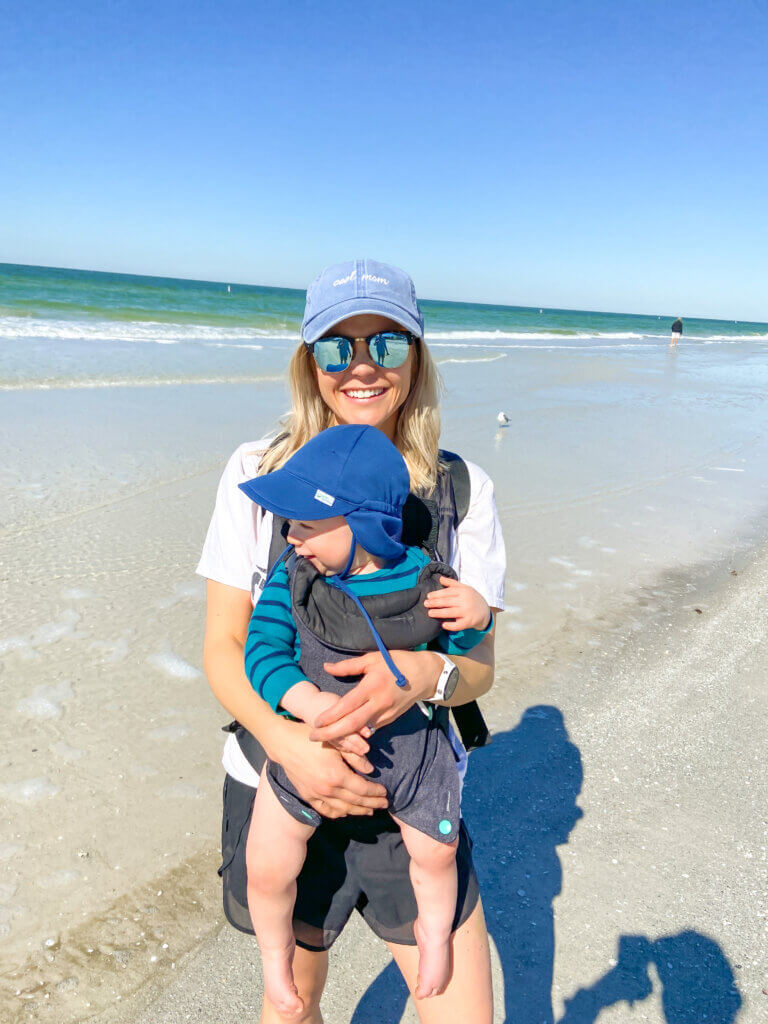
Try to make time for yourself away from your baby occasionally, too, whether that is with friends, your partner or solo. I know it can feel really hard to separate yourself from your baby, and you might feel like it’s more trouble than it’s really worth because of the planning and prep that can be required at times, but I promise – it can help a lot. Even a quick run to Target by yourself can be so life-giving if you haven’t been truly “alone” in weeks.

What hobbies did you enjoy before baby came? Any new hobbies you’re interested in starting? How can you make time for PLAY in your life? Slowly start to add things like this into your schedule that fill your cup and bring you joy.
AdventHealth Kansas City Resources for Moms & Parents
I’m so proud to partner with AdventHealth Kansas City because not only do they provide incredible patient care to moms and families throughout the pregnancy journey, but they provide so many resources to support whole-person health after baby comes as well.
Here are just a few of the resources that are available to you through AdventHealth Kansas City:
- AdventHealth Kansas City has a Postpartum Emotional Support Group weekly at 5:30pm on their Shawnee Mission campus in the Community Education Room, and at the South Overland Park location within the Blue Valley Room, Suite 120
- They have a Facebook page that offers support to the community
- The bereavement specialist is also available to take calls and help families find the counseling and resources that they need, which may include counselors specializing in Maternal Mental Health, postpartum doulas and other new parent resources that they have through ParentCare and the Behavior Checker on their website
- Learn more about Behavioral Health Care in Kansas City via AdventHealth
- AdventHealth Shawnee Mission is involved in the State of KS Fourth Trimester Initiative, working together to improve resources for families as well as addressing social disparities of health. Since working with this initiative, they have been able to work with more therapists that accept insurance especially Medicaid providers
- AdventHealth Kansas City recently embedded Maternal Community Health Workers in their Birth Center. They work with families in Johnson, Wyandotte, Leavenworth and Miami counties. They meet with patients while they are in the hospital, but are trying to get connected with families at the beginning of their pregnancy and then also follow them until baby is 5 years old
- This is a free service, and the best part is they come to the patient, making home visits. Some of the things they can do are:
- Family Resources – connecting families with maternal and infant health education and resources
- Navigating Healthcare – attending doctor/provider appointments, help coordinate transportation when needed, advocating for you to perinatal care and health professionals
- Provide Breastfeeding Support
- Assisting with postpartum depression and anxiety outreach and support
- Offering tools and education to create a safe space for infants
- Community Resources- helping gain access to community resources for food, housing and other necessities
- Health Benefits – assisting families with applying for a utilizing health benefits including Medicaid, private insurance, SOBRA, etc.
- Providing car seats and play and packs for families, they are also certified in car seat installation. Again, the best part is they come to the family, meeting with them at their convenience.
- This is a free service, and the best part is they come to the patient, making home visits. Some of the things they can do are:
Other Related Posts You Might Find Helpful:
- What to Expect When You’re Expecting Baby #2
- AdventHealth Shawnee Mission Birth Center (PS: did you know that the new AdventHealth South Overland Park hospital also has a birth center!? Learn more here.)
- My Birth Story
- Episode 52: Tips for Preparing for a New Baby with Pediatrician Dr. Kate Hartman
- Baby Registry Must-Haves
Whether you are expecting, in the thick of the newborn days, or a more seasoned mom, I hope you took something away from this post! I appreciate you reading and if you found it valuable, please share with a mama friend who might also benefit.
Thank you so much!
Shanna
